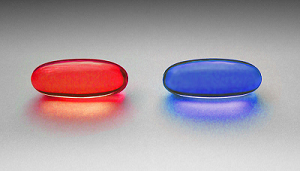Bias in Statistics > Ascertainment Bias
What is Ascertainment Bias?
Ascertainment bias happens when the results of your study are skewed due to factors you didn’t account for, like a researcher’s knowledge of which patients are getting which treatments in clinical trials or poor Data Collection Methods that lead to non-representative samples.
Clinical Trials

The effect isn’t limited to the person giving the treatment and the person receiving it: even the person writing up the results of the trial can introduce ascertainment bias if they know which people are getting which treatments. The best way to prevent this from happening is by using blinding and allocation concealment.
Issues with Data Collection
Ascertainment bias can happen in experiments during data collection; it is a failure to collect a representative sample, which skews the results of your studies. For example, the sex ratio[1] for the entire world population is approximately 101 males to 100 females. Let’s say you wanted to recalculate this figure by taking a sample of 1,000 women at your women-only college and asking them how many male and female children are in their family. The result of this survey will show a heavy bias towards women, because of the simple fact that all the women have at least one female (themselves) in their family. The survey excludes any family where there are only male children. Although this is an extreme example, having uneven numbers (i.e. 400 women and 600 men) will still introduce bias into your results.
References
CIA World Factbook. Retrieved May 23, 2019 from: https://www.cia.gov/library/publications/the-world-factbook/fields/2018.html